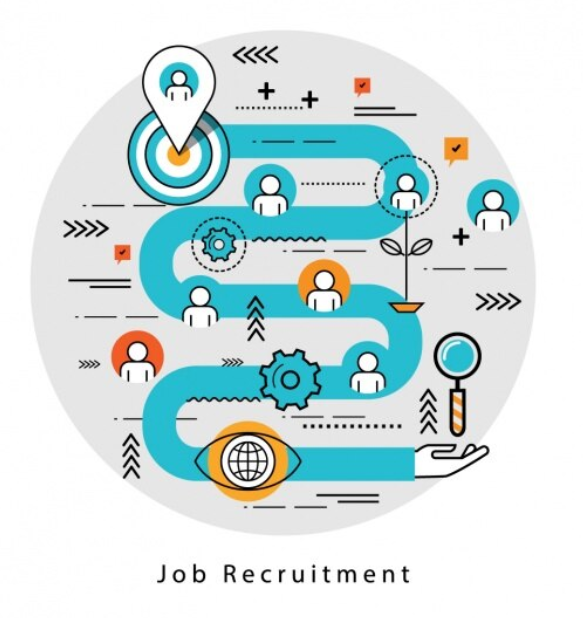Ensuring Fair Recruitment Process: Essential Practices for Inclusive Recruitment
Fair hiring, much like blind and diversity hiring, has found its own buzz as a way of overcoming the challenges facing hiring. Companies spend very high amounts of money in order to find the “best hire” because hiring mistakes cost them thousands of dollars and affect their valuable time, productivity, and team morale.
Fair hiring goes beyond hiring someone based on only their goodness; it also keeps up with the national and local employment laws. Anti-discrimination rules are there and heavy penalties are imposed if a firm violates guidelines on fair hiring. In this guide, we will walk you through the fair recruitment process


What is the Job Fair Recruitment Process?
A fair recruitment process makes sure employers are hiring employees based on their own skills and experience, rather than based on their gender, religion, and other related characteristics. To avoid and forbid discrimination in hiring organizations must follow labor laws and regulations and should implement blind hiring and diversity hiring to achieve fair hiring. That means equal opportunity for all applicants. For instance, an ad requesting “recent college graduates” would violate provisions for older applicants.
Such a fair recruitment process also reduces unconscious discrimination, which are automatic stereotypes against certain groups that could indirectly affect the hiring. Furthermore, this unconscious unfairness can limit diversity and harm the growth and innovation of a company if not addressed through proper training and awareness.
Why implement Fair Hiring Practices?
Fair hiring practices give organizations several key advantages. First, it keeps the company compliant with EEOC policies. Costly damages ranging from $50,000 to $300,000, can be raised against the violations of EEOC. Fair hiring is important to avoid such expensive battles and to protect brand reputation.
Beyond compliance, fair hiring tends to lead to a more diverse workforce that has many benefits for not only employees but organizations too. Companies that are based on diversity and inclusion actually have lower employee turnover, because they engage more. This typically means that hiring costs go down for these companies. Companies that rank in the top 25% for ethnic and cultural diversity are even 36% more profitable compared to those in the bottom 25%. Diverse teams prove to make better, more innovative, and more effective decisions overall.
Fair hiring fosters diversity along with an inclusive environment whereby employees feel valued for their skills and contributions. An inclusive atmosphere wherein each person feels they belong by what they know and what they can do grows from fair, merit-based hiring. Today, job applicants increasingly expect a fair recruitment process as a norm that pushes business leaders to ensure that recruitment and selection processes reflect fairness and inclusivity across their organizations.

Do you want to know more about our hihellohr Software?

-
Fair Recruitment and Selection Process
Fairness while recruitment is important to create a more diverse workforce which leads to innovation, engagement, productivity, and success for an organization. Here are a few fair hiring practices you can implement:
-
Clear Job Descriptions
Define clear job requirements and qualifications to make a good fair hiring practice. Make sure the description matches the skills and experience required for the specified job. Do not encourage unnecessary or exclusionary criteria that may discourage qualified candidates from applying.
-
Fair Job Ads
Diversity and inclusivity should be shown in job ads during the job fair recruitment process. Avoid traditional gender-biased language and instead use job skills language qualifications based on the required skills and qualifications rather than demographics. Further, promote job openings in various social and other platforms and networks to draw a wider audience.
-
Using Inclusive Language in Job Ads
You may be unintentionally pushing away the most qualified, diverse candidates from applying to your company or organization by the language or words you use within your job ads. The words "competitive" and "strong" are subconsciously thought of as male-specific, and words like "support" and "assist" are thought of as appealing to females. Run your job descriptions through a tool such as Textio or The Gender Decoder to have biased words in your job description.
-
Blind CV Screening
Use blind screening of CV to prevent unintended discrimination at the initial level of fair recruitment and selection process. Protect your future employees from unconscious unfairness through blind CV screening. Stripping all descriptions in the CV, including names, gender, age, and institutions, while screening ensures that you get candidates according to the requirements of the job and therefore can minimize unfairness in the procedure. If you are looking for an inclusive blind recruiting solution that will minimize discrimination and bring top talent to your firm, then MeVitae is the answer.
-
Assemble Diverse Hiring Teams
Diverse hiring teams actually benefit more from fair hiring. Create a panel of employees to oversee the interview processes. Having a diverse hiring panel helps incorporate more perspectives into your process and helps reduce unconscious bias. When Intel began utilizing diverse interview panels, the company was able to increase overall diversity within the company by 41%.
-
Structured Interviews
Use structured interviews by preparing pre-structured questions well in advance and then test all applicants with consistency without any partiality during the entire process. Forming standardized questions based on relevant frameworks related to the interview, to test whether or not the candidates possess proper skills for a job.
-
Data-Driven Decision Making
Interviewers must use data and evidence, this will support the job fair recruitment process. Also, try to develop measurable criteria of evaluation for any applicant to establish decision-making. You can also make use of ATS, or other software to gather and evaluate information accurately. If you are looking for a new ATS or other HR Tech providers, check out Rectec, an award-winning comparison platform to help identify the right recruitment technology for you.

Related Articles:



